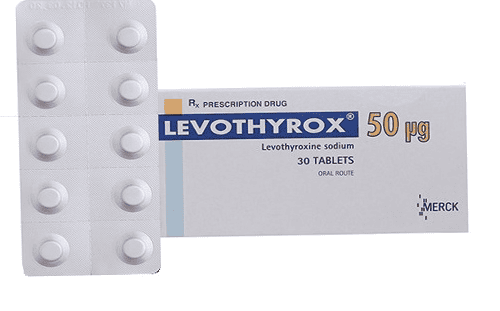This is an automatically translated article.
This article was professionally consulted by Specialist Doctor I Truong Nghia Binh - Obstetrician-Gynecologist - Department of Obstetrics and Gynecology - Vinmec Da Nang International General Hospital. Doctor has more than 13 years of experience in the field of Obstetrics and Gynecology.Congenital hypothyroidism is a disease that directly affects the growth, physical and mental development of children. However, with timely diagnosis and treatment, children can still develop normally and be healthy.
1. Is congenital hypothyroidism common in newborns?
The thyroid is a butterfly-shaped endocrine gland located in the front of the neck, responsible for the production of the hormones Thyroxin (T4) and triiodothyronin (T3) to help regulate the development of the body both physically and mentally. Congenital hypothyroidism is a condition that occurs when a newborn's thyroid gland does not produce enough hormones to meet the body's needs for growth and development.The incidence of congenital hypothyroidism in neonates is between 1/3000 and 1/4000 . Congenital hypothyroidism can be caused by the thyroid gland not moving to the correct position during fetal development and as a result the thyroid gland cannot function properly. In some cases, the thyroid gland is in the correct position but does not develop normally and is therefore unable to produce hormones.
2. Consequences of congenital hypothyroidism
If not detected and treated promptly, congenital hypothyroidism will cause both physical and mental complications as follows: Neonatal period:Baby often sleeps more than usual, lethargy, poor reaction respond to environmental influences. Delayed excretion of meconium and later constipation Baby has prolonged jaundice, pale skin color Baby is less fussy, cries hard, sucks poorly Tongue is large and sometimes protrudes from the sides Baby is slow to gain weight Cold hands and feet The period after infancy and early childhood:
Physical retardation: slow weight gain, height growth delay Mental retardation: less flexible, slow to absorb, leading to poorer learning compared to peers

3. How to detect children with congenital hypothyroidism early?
Babies with congenital hypothyroidism only recover and develop normally when detected and treated early within the first 2-3 weeks after birth. If detected too late, treatment will not be effective due to psychiatric complications and irreversible long-term T4 deficiency. The postpartum screening program is the most effective way to detect congenital hypothyroidism in children. How to proceed as follows:48 hours after birth, take a blood sample from the heel or back of the baby's hand and blot it on blotting paper to test for TSH and T4. If the results are low TSH and T4, the doctor will advise and guide you to continue with specialized diagnostic tests, thereby offering a solution to monitor the disease and treat accordingly.
4. How to treat congenital hypothyroidism?

Thyroid hormone is essential for the normal development of a child during the first 2 years of life. After 2 years of age, this hormone is still necessary for the body to mature and develop. Therefore, the child needs to take medication for the rest of his life. It is not the doctor, but the parents who must try to remind and help the child to create a habit of taking medicine every day for the baby.
Regarding the baby's diet, parents should not let their children abstinence or excessively increase a certain type of food. Children with congenital hypothyroidism should have a normal diet like other children. Congenital hypothyroidism cannot be completely cured with diet, so increasing the use of iodine-rich foods is not necessary.
Vinmec's Maternity Package includes newborn screening tests for hypothyroidism. Vinmec provides a full range of maternity services with outstanding quality, including prenatal, intrapartum and postpartum examination and monitoring to provide comprehensive care for both mother and baby.
Please dial HOTLINE for more information or register for an appointment HERE. Download MyVinmec app to make appointments faster and to manage your bookings easily.














